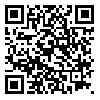Volume 22, Issue 5 (12-2022)
ijdld 2022, 22(5): 331-341 |
Back to browse issues page
Download citation:
BibTeX | RIS | EndNote | Medlars | ProCite | Reference Manager | RefWorks
Send citation to:



BibTeX | RIS | EndNote | Medlars | ProCite | Reference Manager | RefWorks
Send citation to:
Moradi F, Aghaei Bahmanbeglou N, Asgharpour H, Shadmehri S. THE EFFECT OF ENDURANCE TRAINING ON THE INTRACELLULAR CONTENT OF ULK1 AND FIP200 PROTEINS IN THE LEFT VENTRICULAR OF RATS WITH TYPE 1 DIABETES. ijdld 2022; 22 (5) :331-341
URL: http://ijdld.tums.ac.ir/article-1-6184-en.html
URL: http://ijdld.tums.ac.ir/article-1-6184-en.html
1- Department of Physical Education and Sport Sciences, Aliabad Katoul Branch, Islamic Azad University, Aliabad Katoul, Iran
2- Department of Physical Education and Sport Sciences, Aliabad Katoul Branch, Islamic Azad University, Aliabad Katoul, Iran ,nedaghaei@gmail.com
3- Department of Physical Education and Sport Science, Yadegar-e-Imam Khomeini (RAH) Shahre-rey Branch, Islamic Azad University, Tehran, Iran
2- Department of Physical Education and Sport Sciences, Aliabad Katoul Branch, Islamic Azad University, Aliabad Katoul, Iran ,
3- Department of Physical Education and Sport Science, Yadegar-e-Imam Khomeini (RAH) Shahre-rey Branch, Islamic Azad University, Tehran, Iran
Abstract: (781 Views)
Background: Unc-51 Like Autophagy Activating Kinase-1 (ULK1) and FAK Family Kinase-Interacting Protein of 200 kDa (FIP200) play an essential role in controlling autophagy and muscle volume. The aim of this research is to investigate the effect of endurance training on the intracellular content of ULK1 and FIP200 proteins in the left ventricular of rats with type 1 diabetes.
Methods: In this experimental study, 18 rats 2-month-old male Sprague-Dawley rats with a mean weight of 300±20g were selected. 12 rats became diabetic by intraperitoneal injection of Streptozotocin solutions. These rats were randomly divided into 2 groups: diabetic training and diabetic control (6 heads per group); A healthy control group (6 heads)was also considered. The training group practiced endurance training 4 days a week for 6 weeks. Data were analyzed using SPSS software version 23 and one-way ANOVA and Tukey post hoc tests.
Results: The content of ULK1 (increase) and FIP200 (decrease) after endurance training showed a significant change among the research groups in the left ventricular (P=0.0001). Tukey's post hoc test showed that this change is significant between the pair of diabetic training groups to diabetic control, diabetic training to healthy groups, and also diabetic control to healthy groups (P≤0.05).
Conclusion: Endurance training showed that it can have a dual nature to control autophagy in diabetic subjects by increasing ULK1 and decreasing FIP200. There is a need for more investigations in the field of exercise physiology on the proteins responsible for autophagy, especially in type 1 diabetes subjects.
Methods: In this experimental study, 18 rats 2-month-old male Sprague-Dawley rats with a mean weight of 300±20g were selected. 12 rats became diabetic by intraperitoneal injection of Streptozotocin solutions. These rats were randomly divided into 2 groups: diabetic training and diabetic control (6 heads per group); A healthy control group (6 heads)was also considered. The training group practiced endurance training 4 days a week for 6 weeks. Data were analyzed using SPSS software version 23 and one-way ANOVA and Tukey post hoc tests.
Results: The content of ULK1 (increase) and FIP200 (decrease) after endurance training showed a significant change among the research groups in the left ventricular (P=0.0001). Tukey's post hoc test showed that this change is significant between the pair of diabetic training groups to diabetic control, diabetic training to healthy groups, and also diabetic control to healthy groups (P≤0.05).
Conclusion: Endurance training showed that it can have a dual nature to control autophagy in diabetic subjects by increasing ULK1 and decreasing FIP200. There is a need for more investigations in the field of exercise physiology on the proteins responsible for autophagy, especially in type 1 diabetes subjects.
Keywords: Endurance training, Left Ventricle, Unc-51 Like Autophagy Activating Kinase-1, FAK Family Kinase-Interacting Protein of 200 kDa, Type 1 Diabetes
Type of Study: Research |
Subject:
General
Received: 2022/10/11 | Accepted: 2022/12/31 | Published: 2022/12/31
Received: 2022/10/11 | Accepted: 2022/12/31 | Published: 2022/12/31
Send email to the article author
| Rights and permissions | |
 |
This work is licensed under a Creative Commons Attribution-NonCommercial 4.0 International License. |






